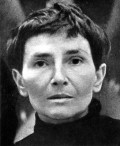Title
Art History in Confrontation with Images: New Beginnings and New Ends of the Discipline Nowe początki i kresy dyscypliny
http://miejsce.asp.waw.pl/en/historia-sztuki-w-starciu-z-obrazami-2/
Abstract
The ‘life of images’ has become a common topic in the field known as New Art History as well as on the frontiers of art-historical discourse including the anthropology of art, art and image theory and visual culture studies. This paper examines the way in which images and their life are conceptualised in W. J. T. Mitchell’s influential works. The author focuses on the inevitable reductionism of the position of the American theorist and proposes an epistemologically effective alternative – namely, using a post-semiological discourse that merges historical analysis and the consideration of the theoretical significance of living images. Post-semiology – a provisional concept – is applied here to a current in French humanities emerging in the 1990s from the remains of structuralist-inspired pictorial semiology crossed over with poststructural inspirations. In the author’s view, Georges Didi-Huberman’s works offer us a viable theoretical option without visual culture studies’ reductionism and art history’s inability to grasp the complexity of images. The author examines briefly the radical consequences of Didi-Huberman’s model of thinking and writing. Images thinking the political and images redefining the autobiographical mode of writing are two discursive possibilities questioning the very essence of writing about the life of images.
This article is only available as an abstract in the English version of our magazine.
Andrzej Leśniak
Historyk sztuki, wykładowca, profesor nadzwyczajny Akademii Sztuk Pięknych w Warszawie. Autor książek: Ikonofilia. Francuska semiologia pikturalna i obrazy (2013); Obraz płynny. Georges Didi-Huberman i dyskurs historii sztuki (2010); Topografie doświadczenia: Maurice Blanchot i Jacques Derrida (2003) i kilkunastu artykułów naukowych.




